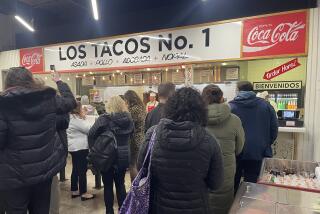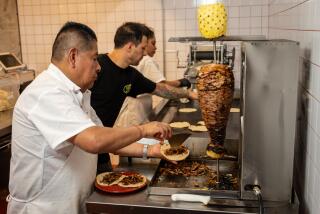Must Reads: This Mexico City restaurant is rescuing deportees with jobs and Texas barbecue
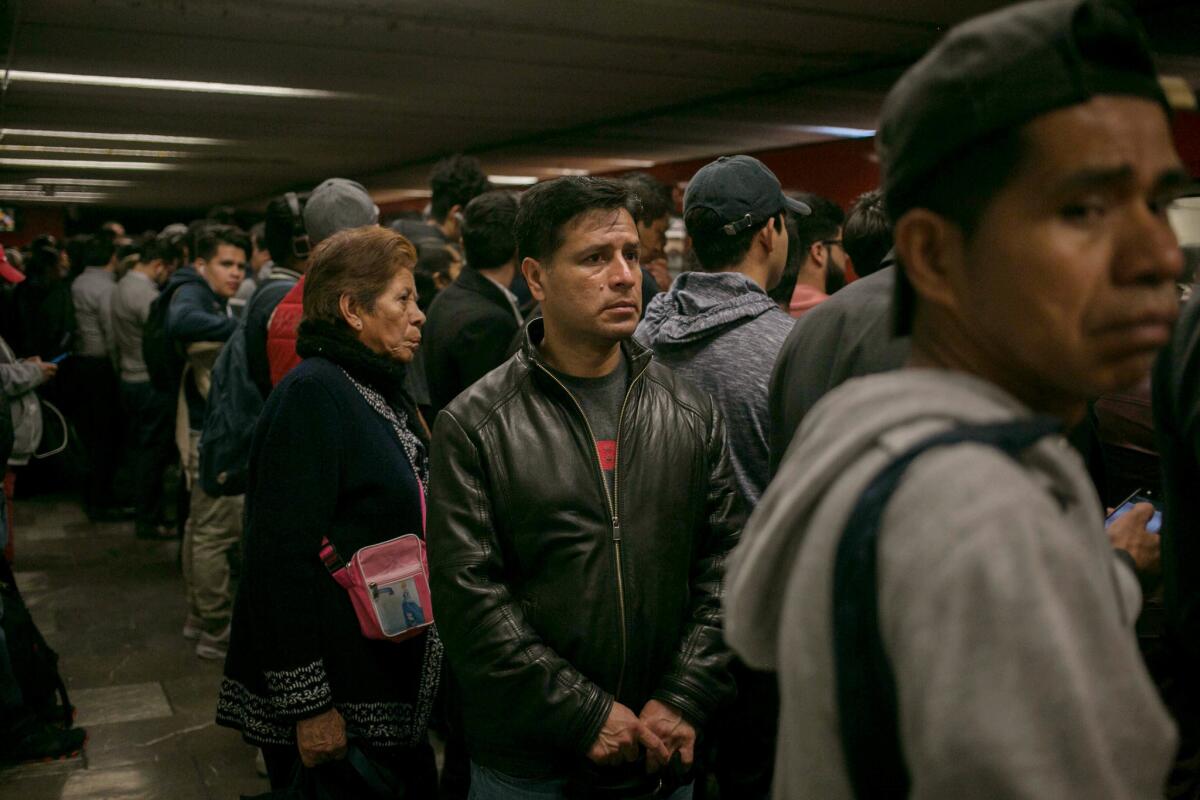
In the days after his deportation, Victor Cruz Ortega wandered the crowded streets of Mexico City in an escalating panic.
His kids, his job and every other fiber of life were back in Redondo Beach, the sun-soaked California community he called home for three decades. Now he was alone and penniless in a teeming Latin American metropolis he had not seen since leaving for the United States at age 11.
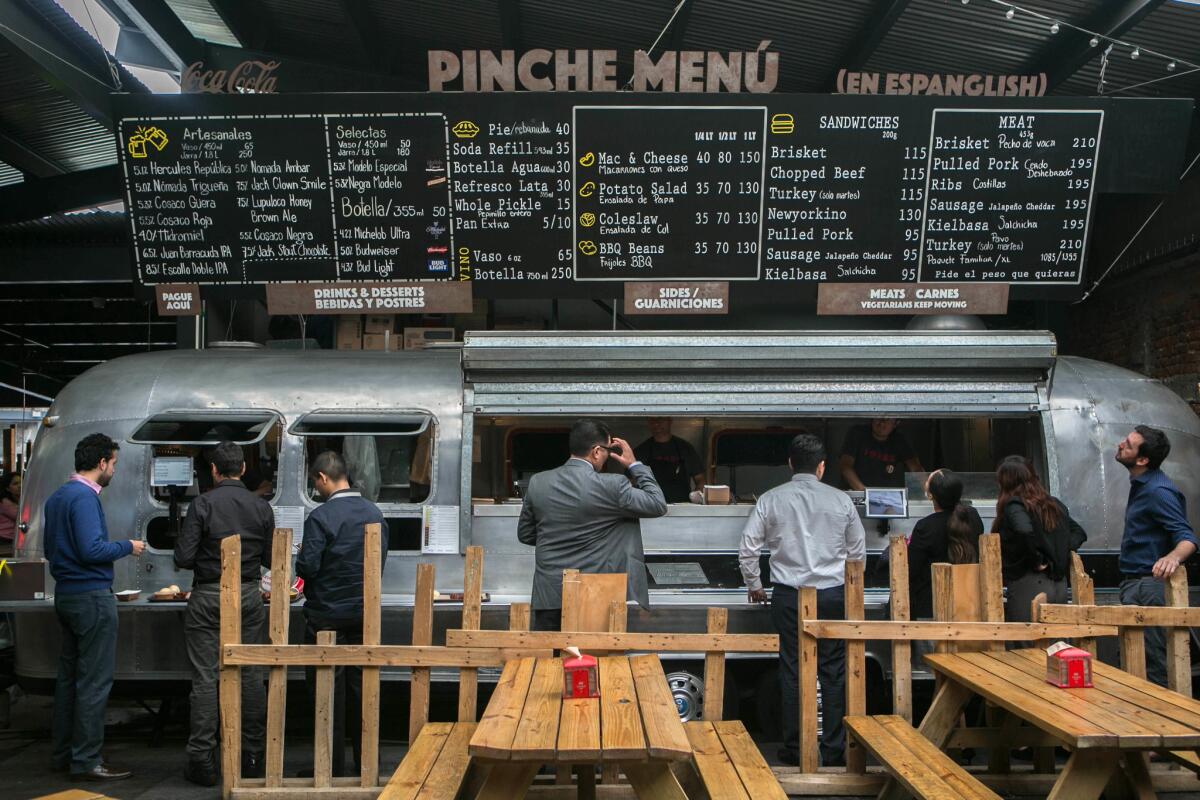
Cruz, 45, applied for every job that he saw advertised: cook, hotel worker, tour guide. At times, he broke down crying in public. He tried to give himself pep talks. He prayed. And then, finally, after months of looking, an unforeseen blessing arrived, and in a most unlikely form.
Cruz was rescued by Texas-style barbecue.
This month, he started working as prep cook at Pinche Gringo, a popular Mexico City barbecue joint whose American proprietor has made a special effort to hire deportees and other Mexicans who have returned after long stints north of the border. Owner Dan Defossey says it’s his answer to President Trump’s hard-line immigration policies, which last year resulted in the deportation of more than 11,000 Mexicans each month.
“That’s our government. I feel responsible for it,” said Defossey, a native New Yorker who fell in love with barbecue — and the border — while teaching high school in South Texas.
“You ask yourself, ‘What can I do?’”
Seven of Defossey’s 50 employees were either deported to Mexico or came back for personal reasons. They are part of a growing influx of returning citizens who have struggled to reintegrate into Mexican society, a vulnerable population that Mexican officials have been slow to acknowledge and assist.
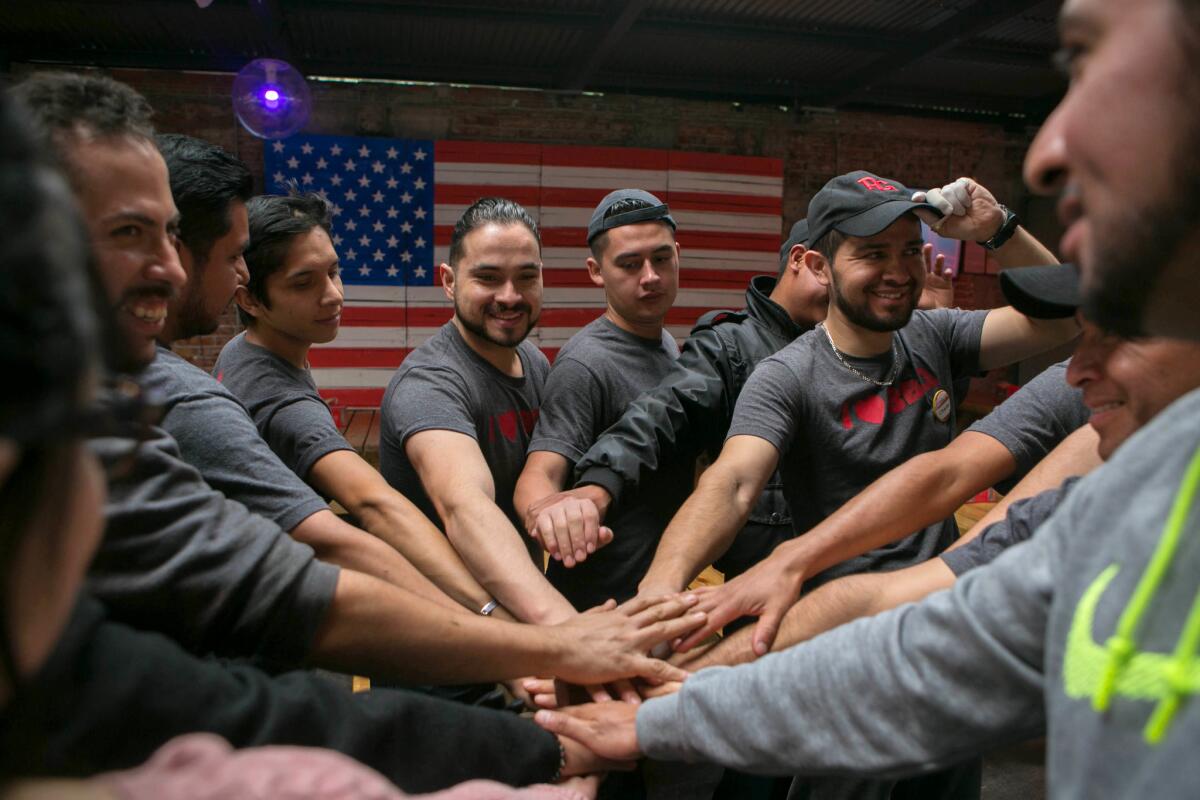
Set apart by their American accents and clothing style, and unaccustomed to the much lower wages, many returnees view Mexico as a kind of exile. Pinche Gringo, with its live country music, English-language comedy nights and icy bottles of Michelob and Budweiser, offers its workers a slice of Americana that many sorely miss.
“I left part of my heart there,” said Miguel Martinez, 30, who spends evenings monitoring a long row of meat smokers at one of the restaurant’s two locations. “The U.S. is my second country. It’s where I learned to be an adult, how to pay my rent. I feel half-American.”
Martinez left his working-class Mexico City neighborhood at age 14 to toil illegally in the U.S., where he ascended from washing dishes at an uncle’s restaurant in New York to running a gourmet kitchen in Boston. He was in the process of applying for a work visa with the help of his boss a few years ago when he came back to Mexico to help his girlfriend, another former immigrant, who had fallen ill.
Returning was tough. “You’re not from here,” Mexicans told him, making fun of his Spanish accent, which had changed from spending so much time with Central Americans in restaurant kitchens. There were times when he felt like an alien.
Hearing English at Pinche Gringo, which is popular with Mexico City’s large expatriate community, makes him smile. “It’s like you’re in the U.S.,” he said. “I can escape my reality for a little while.”
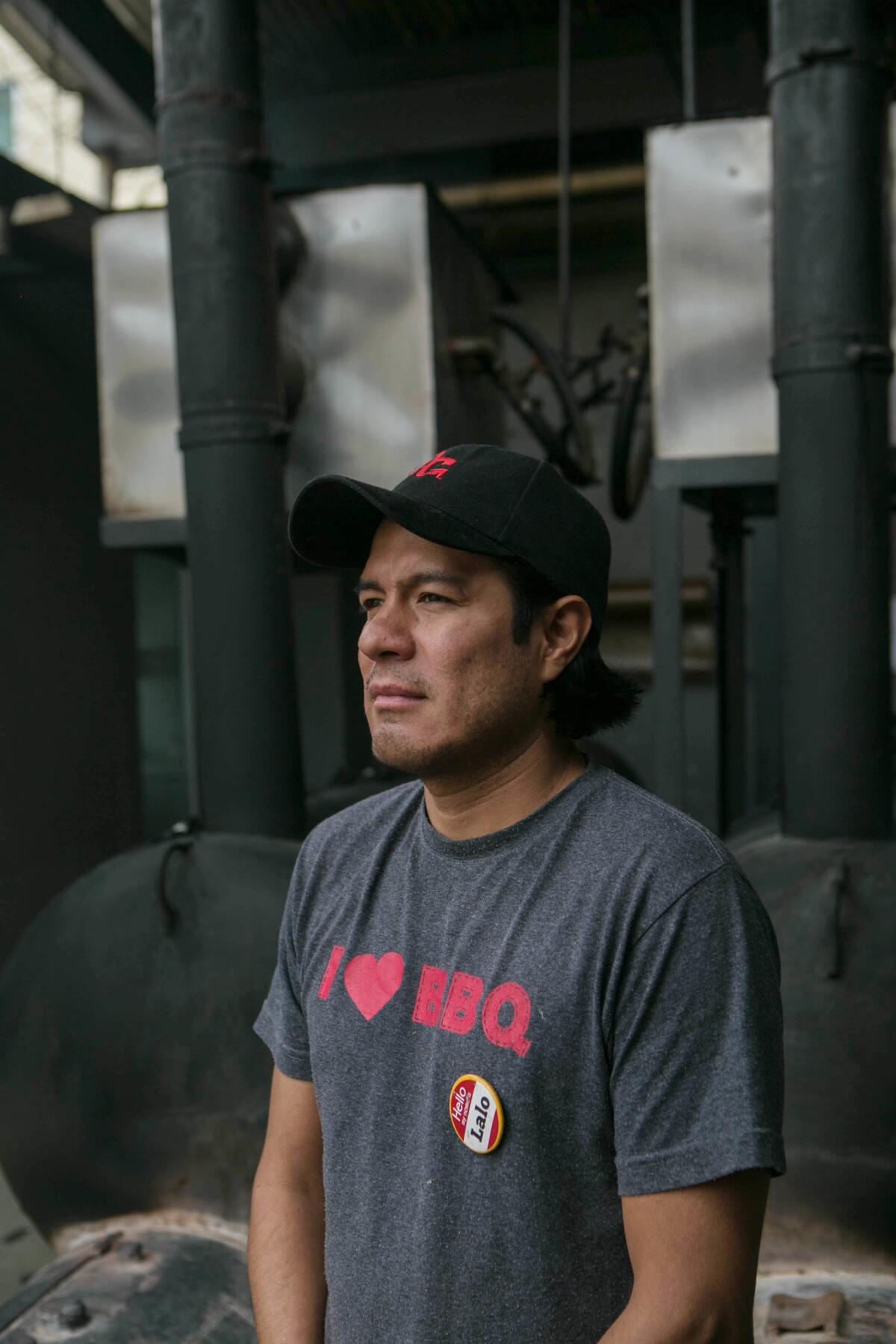
Other restaurant employees include Lalo Jimenez, 40, who was deported after working for a decade in Arizona and now invites his family to the restaurant’s annual Thanksgiving meal, and Miguel Angel Sanchez, 43, who started two barbecue restaurants while living illegally in Oklahoma City and returned to Mexico to apply for a green card that never came through.
And there’s Hugo Hernandez Gonzalez, 38, who worked in Florida kitchens for 10 years before being deported in connection with a DUI. Tattooed on both arms, he struggled to find work in Mexico, where tattoos are taboo. At Pinche Gringo, he helped create the recipes for the restaurant’s famous side dishes — crispy cole slaw and gooey mac and cheese — using cups instead of the metric system typically used in Mexican kitchens and Fahrenheit instead of Celsius.
Pinche Gringo, he said, recognizes that returnees with experience in the U.S. have something special to offer and aren’t to be feared.
“It has changed my life,” he said.
Defossey and his Mexican partner, Roberto Luna, opened the restaurant in 2014. They wanted to introduce authentic American folk culture to a country more familiar with American imports such as Walmart, Chili’s and other corporate chains. Defossey says the restaurant’s mission is to bring the two countries closer together, an ethos he calls “barbecue diplomacy.”
He says the restaurant’s name, which is not quite an F-bomb but translates to a crasser version of “Freakin’ Gringo,” was designed to signal a certain humility and self-deprecation that hasn’t always been present in U.S.-Mexican relations.
Defossey didn’t seek out American returnees at first. He hired a few shortly after opening without thinking too much about their immigration histories. Now job applicants with experience in the U.S. have a leg up over others. When he interviewed Cruz for the job last month and heard his story, Defossey said, he started crying.
Cruz said he was deported in February after being arrested for running a red light. He started work last week at the restaurant’s first location, in a brick building lined with picnic tables and lit with red neon in the middle-class neighborhood of Narvarte. The air is thick with smoke from cooking brisket, pulled pork and ribs. He prepares and serves sides from inside an old Airstream trailer to the thump of classic rock songs.
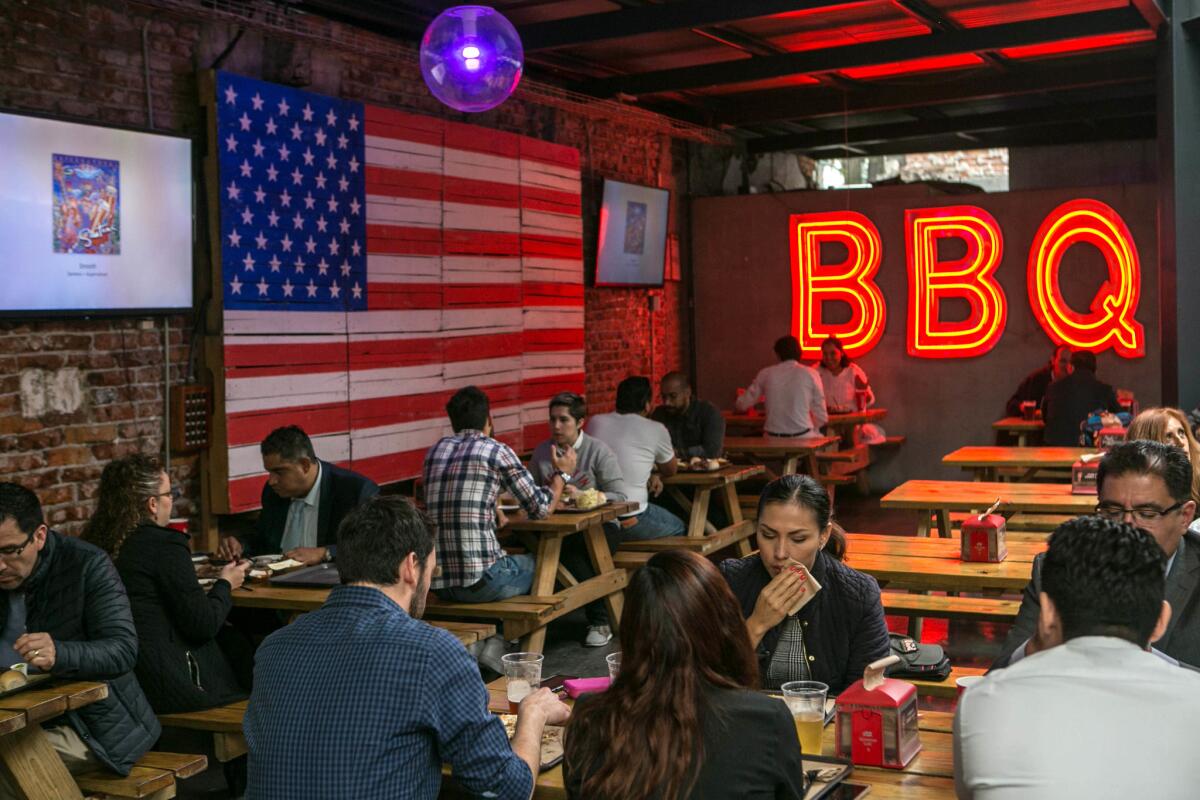
He is still getting used to the changes. In California, he made $20 an hour as a chef at a trendy restaurant near the beach. Here he earns about that much in a full day, which is still much better than most jobs in Mexico, where the minimum daily wage is about $5.
Cruz still cries easily. He did so during a recent employee meeting where he was being introduced to his new colleagues. He blurted out his story, wiped his eyes, and said he is looking forward to traveling to Tijuana someday to meet up with his American-born kids, 15-year-old Oliver and 9-year-old Hannah. Several workers embraced him afterward and gave him affectionate slaps on the back.
On a recent day, Cruz stopped Jimenez.
“Do you miss the U.S.?” he asked.
“Yes,” Jimenez said. “But it gets easier with time.”
“I lost everything. I never expected to be here,” Cruz said. “But I have to make a life here.”
At the end of his shift, he often finds himself lingering at the restaurant.
“I don’t like being alone,” he said. “Sometimes, I don’t want to go home.”
Twitter: @katelinthicum
More to Read
Start your day right
Sign up for Essential California for news, features and recommendations from the L.A. Times and beyond in your inbox six days a week.
You may occasionally receive promotional content from the Los Angeles Times.
